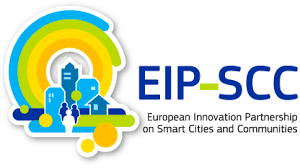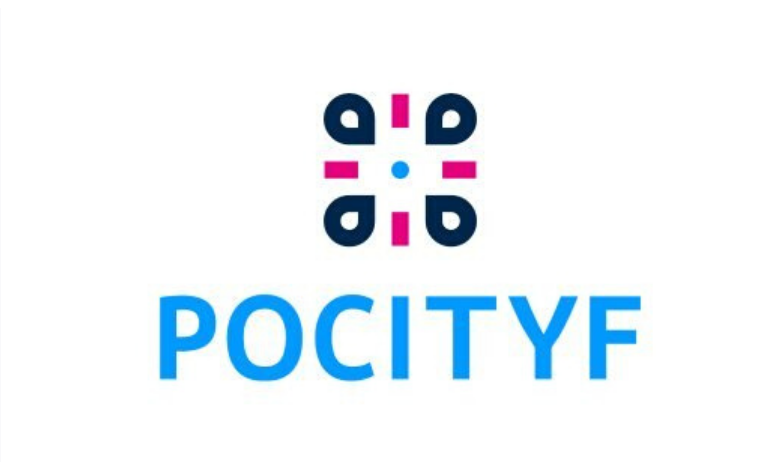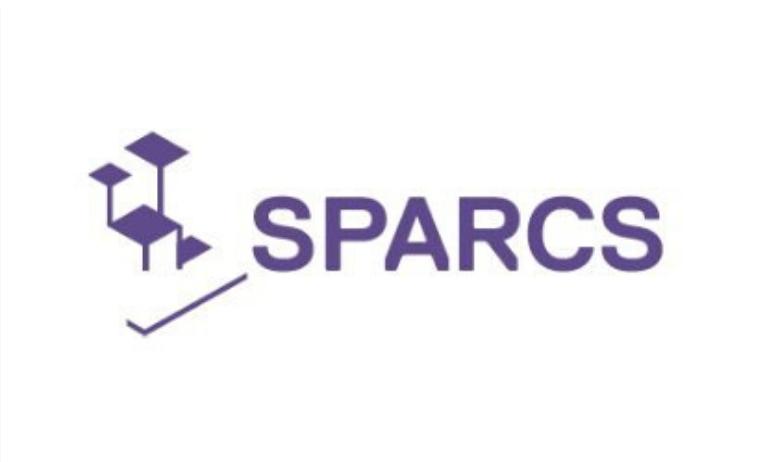Lighthouse Cities Project’s family keeps growing and during the month of November three new projects enter

As the European Innovation Partnership on Smart Cities and Communities has announced on its website, ATELIER, POCITYF and SPARCS are the new members of the Lighthouse City project:
On 1 November 2019, the Smart City project ATELIER, funded by the European Commission under the H2020-LC-SC3-2018-2019-2020 call, is officially starting. Coordinated by the City of Amsterdam, ATELIER will focus on developing citizen-driven Positive Energy Districts in its two Lighthouse Cities Amsterdam and Bilbao, combining the expertise and the commitment of 30 partners from 11 countries.
ATELIER is all about AmsTErdam and BiLbao cItizen drivEn smaRt cities, aiming to create and replicate Positive Energy Districts (PEDs) within eight European cities. ATELIER will showcase innovative solutions that integrate buildings with smart mobility and technologies to create rather than consume energy in its two Lighthouse Cities Amsterdam (Netherlands) and Bilbao (Spain). ATELIER will thus generate an energy surplus of 1340 MWh of primary energy and save 1,7 kt of CO2 and 23 t of NOx-emissions. The Fellow Cities of ATELIER, Bratislava (Slovak Republic), Budapest (Hungary), Copenhagen (Denmark), Krakow (Poland), Matosinhos (Portugal), and Riga (Latvia), will replicate and adapt the successfully implemented solutions and thus serve as testbeds for future smart cities.
On 2 and 3 December, 30 partners working in 10 work packages will come together in Amsterdam for the official kick-off of this five-year project, thus joining the community of overall 17 Smart Cities and Communities Lighthouse projects.
“Our vision is to create dedicated PED Innovation Ateliers to strengthen the local innovation ecosystem, and to remove legal, financial or social barriers to the implementation of smart solutions”, says Frank Tazelaar, Head of Sustainability at City of Amsterdam. “The Innovation Ateliers will be self-sustaining, continuing for a long time after the project has ended, thus being engines for the upscaling and replication of solutions within the ATELIER cities and beyond (Europe and the World). Moreover, through an active learning programme, we will capture and pass along the lessons learned of our Innovation Ateliers”, he adds.
To achieve successful implementations of energy saving measures, ATELIER puts citizens at the center of all its activities: residents (<9000), local initiatives and energy communities will be included in decision-making processes and activities and will be strongly engaged in the development of the technical solutions throughout the project. Citizens will be involved in the Innovation Ateliers to create a maximum impact for the PEDs.
“With ATELIER, we really want to pave the way for more ‘positive’ cities in Europe. Therefore, each of our eight involved cities will develop a City Vision 2050 that constitutes the roadmap for upscaling solutions in the long term. The main objective of this is to guarantee a seamless city transformation from planning to implementation and further upscaling and replication”, explains Eduardo Zabala of Tecnalia Research & Innovation, leader of the City Vision 2050 work.
The ATELIER website http://www.smartcity-atelier.eu/ will go online soon but our Social Media channels (Twitter: @AtelierH2020) are already running, thus enabling ATELIER and its partners to communicate and cooperate with the Smart City community and related projects early on.
Project Coordinator: City of Amsterdam – ATELIER.EU@amsterdam.nl
Main Press Contact: Bettina Remmele, Steinbeis-Europa-Zentrum – remmele@steinbeis-europa.de
A new smart city EU-funded project, POCITYF, is set to transform our historical and cultural cities into more efficient, healthy, sustainable living environments with “positive energy districts“. Led by EDP, the project kicks off on 9 October with 46 partners from 13 countries.
At the heart of this new project lie “Positive Energy Blocks/Districts”, which are groups of buildings that actively manage their energy consumption and the energy flow between them and the wider energy system. Positive energy districts have an annual positive energy balance.
Kicking off on 9 October in Évora, Portugal, POCITYF (A Positive Energy CITY Transformation Framework) will combine these positive energy blocks with grid flexibility, e-mobility, innovative ICT technologies and citizen engagement strategies. The overall aim is to help cities deliver positive energy districts while respecting their mixed urban settings that often include listed buildings of historical interest and other cultural heritage features.
Project coordinator João Maciel, from EDP LABELEC, explains: “POCITYF is different because it includes a strong focus on heritage areas, tackling the untapped barriers that accrue from legal and regulatory restrictions against the installation of conventional solutions that historical and protected sites currently struggle with. It is a project from which many other historical cities can draw inspiration from”.
Activities will be carried out in two lead cities or “Lighthouse” cities: Évora (Portugal) and Alkmaar (Netherlands). Six other cities, known as fellow cities, will seek to replicate the works: Granada (Spain), Bari (Italy), Celje (Slovenia), Ujpest (Hungary), Ioannina (Greece) and Hvidovre (Denmark). Beyond this project group, other cities are invited to join the POCITYF network to share experience and learn from the project’s findings.
The two Lighthouse cities will benefit from solutions divided into four “Energy Transition Tracks”:
1. Innovative solutions for positive buildings and districts
2. Peer to peer energy management and storage solutions for grid flexibility
3. E-mobility integration into smart grid and city planning
4. Citizen-driven innovation in co-creating smart city solutions
“Heading up POCITYF agenda, there’s the goal to carve this upcoming citywide sustainable landscape, by delivering the pioneering concept of Positive Energy Blocks in the cities of Évora and Alkmaar,” adds João Maciel. “The cross-domain and innovative repository of solutions will also be partially replicated in six other cities, spread over the continent, boosting project impact”.
Overall, POCITYF will therefore add layers of “smartness” to key city infrastructures, technologies and services, creating new possibilities to make cities safer, greener and more responsive to the needs of their citizens, businesses and other organisations.
“Built on the perpetual tension between the heritage wealth of the past and the challenging look of the future, stands a city with a strong identity and cultural mark, classified as a World Heritage Site by UNESCO and ready to assume the responsibility of being European Capital of Culture in 2027. It is in this context that we incorporate the POCITYF project, essential in the smart differentiation strategy that has made Évora a resilient, adaptive city, eager for new and vibrant challenges”. Mr. Alexandre Varela, City Councillor of Évora.
“The Municipality of Alkmaar is honored and proud to become a Lighthouse city in the Horizon2020 POCITYF project. Alkmaar isn’t just a city with a strong cultural and historical heritage; it is also an enterprising, modern city with a strong knowledge-driven economy, based on sustainability, tourism, healthcare, entrepreneurship and innovation. The cooperation between partners both in Europe as well as locally in The Netherlands will push the innovation on positive energy applications forward. Working together in this project and exchanging knowledge and experiences will make the world a better place”. Mr. Peter van den Dries, program manager of Alkmaar Municipality.
POCITYF is a Smart City project funded under the European Union’s Horizon 2020 research and innovation programme. It will last for 60 months with an overall budget of €22.5m (of which the EU contribution amounts to €20m).
Grant agreement number: 864400
Duration: 60 months (October 2019 – September 2024
Consortium: 46 partners from 13 countries (Portugal, Italy, Spain, Germany, Greece, Netherlands, Slovenia, Hungary, Denmark, Finland, Austria, Belgium, Switzerland).
POCITYF project has received funding from the European Union’s Horizon 2020 research and innovation programme under grant agreement No 864400.
Project Coordinator: EDP LABELEC – João Maciel
Contact: press@edp.pt – +351 21 001 26 32 – @POCITYF
Communication Secretariat: Fondazione ICONS – Charlotte Michi
charlotte.michi@icons.foundation – +39 0371 091065
SPARCS is a long-term commitment of its more than 30 partners involving close to 100 people working towards the common goal of creating a network of Sustainable energy Positive & zero cARbon CommunitieS. Preparations have taken place since 2017, including face-to-face meetings, workshops and data collection.
What we aim to do:
Urban ecosystems generate an Information Society with citizens being at the centre of the decision process and aware of the city’s activities. A top priority is to set up inclusive management and planning models, ecosystems and processes, with involving companies, city planning and technical departments, and citizen and research organizations.
1. Establishing a robust and dynamic circular economic framework is the other key element for creating citizens inclusive carbon neutral urban communities.
2. Enabling an urban transformation based on these concepts spontaneously promotes the creation of new business, the collaboration between public and private entities and the flourishing of small businesses connected to the innovative initiatives.
3. Engaging innovation-oriented investors, professionals and companies is the direction to follow in order to supply high quality services, to raise employment rates and to give meritocratic and adequate wages to citizens.
To realize such urban ecosystem implies having a long-term commitment from cities, in-depth understanding of current city challenges, mastering city business models as a whole with its social, environmental and economic implications to both local and global scale. In this context, advanced carbon neutral technological solutions become profitable for Public-Private-Partnership (PPP) investment.
Lighthouse cities aim to prove that the urban energy transformation of a city into a carbon neutral urban community is socially and economically viable. Fellow cities demonstrate the smooth transferability of this transformation model.
The diamonds of SPARCs are two lighthouse cities: Espoo in Finland and Leipzig in Germany, and five fellow cities: Reykjavik in Iceland, Maia in Portugal, Lviv in Ukraine, PhilotheiPsychiko in Greece and Kladno in Czech Republic. They are firmly committed to transform the city into a carbon free inclusive community.
How we aim to do it:
SPARCS provides systematic support and direction for the urban transformation and community engagement actions in the 2 lighthouse cities, and 5 follower cities, towards developing a shared Bold City – vision 2050. Focal points are digitalization, a sustainable energy transition, improved air quality and electro-mobility solutions, and a framework for performance monitoring of demonstrated positive energy solutions.
Who aims to implement it:
SPARCS brings together a wide expertise group that deploy together integrated solutions for Energy Positive Building Blocks and Districts in the lighthouse cities.
Website: https://www.sparcs.info/
Contact: https://www.sparcs.info/contact



